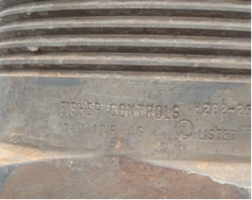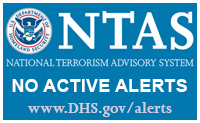What's New
Part 40 Summary of Changes – Addition of Oral Fluid Testing
When is the final rule effective?
The final rule is effective June 1, 2023.
Can anyone implement DOT-regulated oral fluid testing on the effective date?
- Not yet!
- DOT oral fluid testing cannot be implemented until the Department of Health and Human Services (HHS) certifies at least two laboratories (one to serve as a primary laboratory, and a second to serve as a split specimen laboratory).
What does this mean for employees?
- You could be subject to either an oral fluid collection or a urine collection for any DOT-regulated test [i.e., pre-employment, random, reasonable suspicion/cause, post-accident, return-to-duty, or follow-up].
- If there is a reason a second collection is needed during the testing event, (e.g., initial temperature out-of-range urine specimen, or insufficient quantity for either an oral fluid or a urine specimen), the employer may choose to change to the other type of collection to finish the testing event.
- The choice of whether to conduct an oral fluid or a urine test is up to the employer.
- Substance Abuse Professional (SAP) evaluations may be conducted remotely.
What does this mean for employers?
- You, not the employee, choose the collection methodology for the test reason (e.g., randoms will start with urine; follow-ups will use oral fluid).
- You, not the employee, choose the collection methodology for the subsequent collection following a shy bladder, dry mouth, or other test that requires a directly observed collection.
- Ensure you have business relationships with the oral fluid collectors and labs, whether directly or through your service agents.
- It is best business practice to have a standing order in place with each of your collection sites, so they know what kind of collection you want performed (i.e., urine or oral fluid) and when.
- Designated Employer Representatives have always been required to be available to the collectors 24-7, but that is even more important now.
- Ensure your phone number is correct on the CCF so the collector can reach you.
- You need to be available to the collector to discuss if there are problem collections.
- You should always be available to discuss standing orders on what type of test you want administered if problem collection scenarios arise (e.g., if an employee does not provide a sufficient urine specimen, do you want the collector to switch to an oral fluid collection?).
- It is the employer’s duty to determine whether a refusal has occurred at the collection site. Employers have never been able to delegate this duty. So, a collector
can tell you something appears to be a refusal, but the final determination is yours.
- Remember, if an employee does not appear for a pre-employment drug test or leaves the collection site before receiving a cup (for a urine collection) or unwrapping the device (for an oral fluid collection) it is not a refusal.
What does this mean for SAPs?
- SAPs may conduct evaluations either in-person or remotely, with criteria for remote evaluations as follows:
- Technology used must permit real-time two-way audio and visual interaction between the SAP and the employee.
- Quality of the technology must be sufficient to allow the SAP to gather all the visual and audible information the SAP would normally observe in a face-to-face in-person interaction.
- Technology must incorporate sufficiently robust security to protect the confidentiality of the conversation.
- If you are an otherwise qualified SAP, you must abide by the geographic limitations applicable to your credential when performing remote evaluations. You must not conduct an evaluation that exceeds your geographic limitations.
What are some of the other changes to Part 40?
- For directly observed collections, if the same gender collector cannot be found:
- If the employer has a standing order to allow oral fluid testing in such situations, the collector will follow that order.
- If there is no standing order from the employer, the collector must contact the DER and either conduct an oral fluid test if the collection site is able to do so or send the employee to a collection site acceptable to the employer for the oral fluid test.
- For direct observation collections involving transgender or nonbinary individuals, an oral fluid collection must be conducted.
Brake Safety Week, August 20-26
The Commercial Vehicle Safety Alliance (CVSA) has scheduled this year’s Brake Safety Week for Aug. 20-26 with a focus on brake lining/pad violations.
When inspectors conduct the brake portion of a Level I or Level V Inspection, they will:
- Check for missing, non-functioning, loose or cracked parts.
- Check for contaminated, worn, cracked and missing linings or pads.
- Check for S-cam flipover.
- Listen for audible air leaks around brake components and lines.
- Check that slack adjusters are the same length (from center of S-cam to center of clevis pin) and the air chambers on each axle are the same size.
- Ensure the brake system maintains air pressure between 90-100 psi (620-690 kPa) and measure pushrod travel.
- Inspect for non-manufactured holes (e.g., rust holes, holes created by rubbing or friction, etc.) and broken springs in the spring brake housing section of the parking brake.
- Inspect required brake system warning devices, such as anti-lock braking system (ABS) malfunction lamp(s) and low air-pressure warning devices.
- Inspect the tractor protection system, including the bleedback system on the trailer.
- Ensure the breakaway system is operable on the trailer.
Operation Safe Driver, July 9 - 15
CVSA has announced July 9-15 as this year’s Operation Safe Driver Week. Throughout that week, law enforcement officers in Canada, Mexico and the U.S. will be on the lookout for commercial motor vehicle drivers and passenger vehicle drivers engaging in unsafe driving behaviors. Those exhibiting unsafe driving behaviors will be pulled over and given a warning and/or issued a ticket/citation by law enforcement.
Unannounced Brake Safety Day
On April 19, 6,829 commercial motor vehicles were inspected throughout Canada, Mexico and the U.S. CVSA's unannounced Brake Safety Day. Inspectors found brake-related critical vehicle inspection items on 11.3% of the vehicles inspected. As a result, inspectors restricted those 773 commercial motor vehicles from travel until the violations were corrected.
CVSA's Brake Safety Day is also an opportunity to obtain additional data related to the health and wellness of brake systems on commercial motor vehicles. This year, CVSA focused on capturing data on brake lining/pad violations. Of the 6,829 commercial motor vehicles inspected, 108 power unit and 87 towed unit lining/pad violations were identified, for a total of 195 combined lining/pad violations.
International Roadcheck 2023!
CVSA has announced May 16-18 as this year’s International Roadcheck. This year, inspectors will focus on anti-lock braking systems (ABS) and cargo securement to highlight the importance of those aspects of vehicle safety. Although ABS violations are not out-of-service violations, ABS play a critical role in reducing the risk of collisions by preventing the wheels from locking up or skidding, allowing a driver to maintain control of the vehicle while braking. In addition, improper cargo securement poses a serious risk to drivers and other motorists by adversely affecting the vehicle’s maneuverability, or worse, causing unsecured loads to fall, resulting in traffic hazards and vehicle collisions.
Training Provider Registry!
February 7, 2022 - The FMCSA Training Provider Registry will retain a record of which CDL applicants have completed the new training and certification process outlined in the Entry-Level Driver Training (ELDT) regulations.
FMCSA’s Entry Level Driver Training Program sets the baseline for training requirements for entry-level drivers. This includes those applying to:
- Obtain a Class A or Class B CDL for the first time.
- Upgrade an existing Class B CDL to a Class A CDL
- Obtain a school bus (S), passenger (P), or hazardous materials (H) endorsement for the first time.
The Entry-Level Driver Training regulations are not retroactive; the entry-level driver training requirements do not apply to individuals holding a valid CDL or an S, P, or H endorsement issued prior to February 7, 2022.
Any individual who meets one of the exceptions for taking a skills test in 49 CFR Part 383 is also exempt from the Entry-Level-Driver Training requirements.
Who can be an instructor?
Entry-Level Driver Training is broken into two parts, Theory (Classroom) training and Behind-the-wheel (BTW). Both can be done by the same instructor or by different instructors. Theory training can also be completed via an on-line provider that is registered with the Training Provider Registry.
What are the qualifications for a Theory Instructor?
Theory instructor means an individual who provides knowledge instruction on the operation of a CMV and meets one of these qualifications:
- Holds a CDL of the same (or higher) class and with all endorsements necessary to operate the CMV for which training is to be provided and has at least 2 years of experience driving a CMV requiring a CDL of the same (or higher) class and/or the same endorsement and meets all applicable State qualification requirements for CMV instructors; or
- Holds a CDL of the same (or higher) class and with all endorsements necessary to operate the CMV for which training is to be provided and has at least 2 years of experience as a BTW CMV instructor and meets all applicable State qualification requirements for CMV instructors.
What are the qualifications for a Behind-the-Wheel Instructor?
Behind-the-wheel (BTW) instructor means an individual who provides BTW training involving the actual operation of a CMV by an entry-level driver on a range or a public road and meets one of these qualifications:
- Holds a CDL of the same (or higher) class and with all endorsements necessary to operate the CMV for which training is to be provided and has at least 2 years of experience driving a CMV requiring a CDL of the same or higher class and/or the same endorsement and meets all applicable State qualification requirements for CMV instructors; or
- Holds a CDL of the same (or higher) class and with all endorsements necessary to operate the CMV for which training is to be provided and has at least 2 years of experience as a BTW CMV instructor and meets all applicable State qualification requirements for CMV instructors.
New Hours of Service FY2020
FMCSA revises the hours of service (HOS) regulations to provide greater flexibility for drivers subject to those rules without adversely affecting safety, Motor carriers are required to comply with the new HOS regulations starting on September 29, 2020, not before. The Agency:
- Expands the short-haul exception to 150 air-miles and allows a 14-hour work shift to take place as part of the exception;
- Expands the driving window during adverse driving conditions by up to an additional 2 hours;
- Requires a 30-minute break after 8 hours of driving time (instead of on-duty time) and allows an on-duty/not driving period to qualify as the required break;
- Modifies the sleeper berth exception to allow a driver to meet the 10-hour minimum off-duty requirement by spending at least 7, rather than at least 8 hours of that period in the berth and a minimum off-duty period of at least 2 hours spent inside or outside of the berth, provided the two periods total at least 10 hours, and that neither qualifying period counts against the 14-hour driving window.
IMMEDIATE ACTION REQUIRED
The Federal Motor Carrier Safety Administration (FMCSA) is issuing this safety advisory concerning pressure relief devices (PRD) that were not manufactured or intended for use on cargo tank motor vehicles. PRDs are an integral part of the safety mechanisms for U.S. Department of Transportation (DOT) specification cargo tank motor vehicles and are vital to ensuring the safety of hazardous materials transportation by highway.
In 2013, Emerson Process Management Regulator Technologies, Inc. issued a voluntary recall on Fisher Control pressure relief devices models H732 and H832. In 2014, the recall was expanded to include models H282, H882, H5112, and H8112. After a recent crash involving a MC330 cargo tank motor vehicle, FMCSA and the National Transportation Safety Board (NTSB) investigators discovered that one of the PRDs installed on the cargo tank motor vehicle was a Fisher Controls model H282.
All owners and operators of specification MC330 or MC331 cargo tank motor vehicles, and cargo tank motor vehicles operated pursuant to 49 CFR §173.315(k), should immediately inspect their PRDs for these Fisher Controls model numbers. If any of the listed models are discovered, the cargo tank motor vehicle must be taken out of hazardous materials transportation service and the PRD must be immediately removed and replaced. Continued use of these PRDs is a violation of 49 CFR §180.405 and a safety concern.
Registered Inspectors and companies that maintain stocks of Fisher Control PRDs should take all necessary steps to ensure the model numbers listed above are not used for hazardous materials transportation service. Model numbers are located on the PRD as shown above





